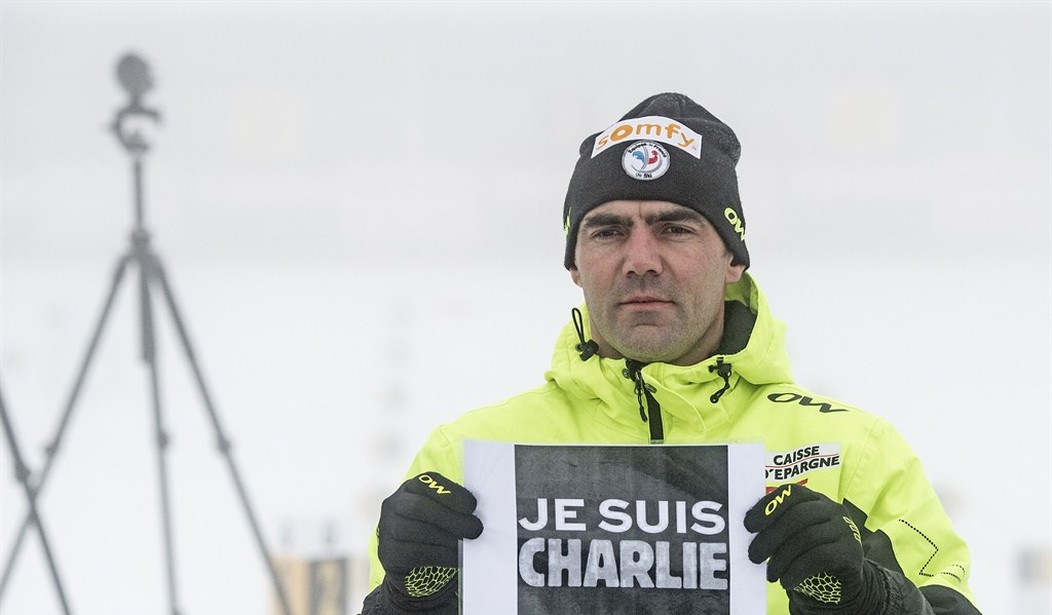It is a growing phenomenon, and it was on visible display last week. A group of terrorists was so offended by a publisher that the publisher had to be destroyed publicly as both an act of vengeance and an act of instruction.
The act of vengeance was directed against the publisher directly. He came under attack for his personal actions. He published something that offended the group. He published something that enraged them and, consequently, he needed to be punished.
The punishment could not be minor. It could not be something like heaping scorn on him. It could not be a public disagreement, a challenge or a debate. The subject, after all, is not debatable. The publisher had to be crushed, his livelihood taken, and he had to be ruined.
Ruining him, though, is not enough. There had to be instruction for others. The dictionary defines terrorism as "the use of violence and intimidation in the pursuit of political aims." One of those political aims is to let others know that if they speak out, they will be ruined, too. The terrorist must teach the public that if any of them causes offense, they too will be taken out. It is more than that, though. It is also instruction to self-regulate against offense.
Once a person has been visibly ruined with no grace and no mercy because, in this example, he dared publish something that offended the terrorists, the lesson is clear. Polite society does not want that violence and cannot abide the violence. So the public will step in, as agents of the terrorist under duress, to shut up any others who might stand in the town square and risk offending. The public shuts them up and shuts them down because the public does not want the intimidation, harassment and ruin.
Recommended
The result is that the conversation ceases. Importantly, it is not because the conversation was out of bounds culturally, civically or politically. It is only out of bounds because of the repercussions from a minority group intent on silencing dissent. Before the conversation stops in the town square, however, it stops in the offices, in the schools and in the academy. Eventually, it stops except between the best and most trusted of friends.
While much of the world focused on terrorists killing cartoonists in France for offending their religion, last week in Atlanta, Georgia, the mayor of Atlanta fired the city's fire chief, Kelvin Cochran, for his Christian faith. The mayor claimed it was not Cochran's faith, but Cochran's judgment. The mayor's excuse is hard to believe.
In November of 2013, Kelvin Cochran, a former Obama administration official turned chief of the fire department in Atlanta, Georgia, published a book titled "Who Told You That You Were Naked?" The book expounded on the fire chief's faith and encouraged people to turn their lives over to Christ.
In the book, Cochran said his chief end was "to glorify God." He said that was his first duty even in his job at the fire department. A reflection of the Westminster Catechism, it is also a summation of Dr. Martin Luther King, Jr.'s "Street Sweeper" speech. In that speech, Dr. King said that men needed to worship God and turn their lives over to God.
Dr. King began, "go on out and sweep streets like Michelangelo painted pictures; sweep streets like Handel and Beethoven composed music; sweep streets like Shakespeare wrote poetry; sweep streets so well that all the host of heaven and earth will have to pause and say, 'Here lived a great street sweeper who swept his job well.'"
Kelvin Cochran, in his book, also said that any sex outside of heterosexual marriage is wrong. He said gay sex, like heterosexual sex outside of marriage, is a sin. For saying his job was to glorify God and gay sex is a sin, gay rights activists screamed loudly that he could not do his job. They accused Cochran, with no evidence, of proselytizing on the job.
The offended group of activists had to destroy Kelvin Cochran's livelihood because his published work offended them. Mayor Reed of Atlanta complied.

























Join the conversation as a VIP Member